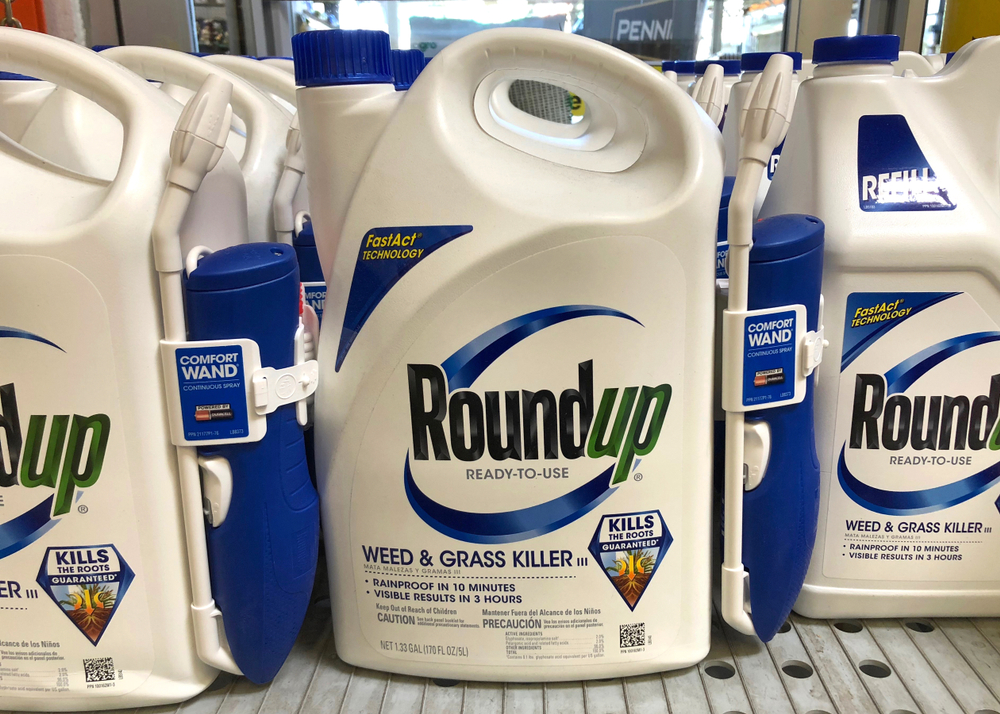Bayer, the world’s largest seed and pesticide maker, has agreed to pay more than $10 billion to settle tens of thousands of claims in the United States that its weedkiller Roundup causes cancer, the company said Wednesday.
Bayer, which also makes pharmaceuticals, inherited thousands of lawsuits against Roundup creator Monsanto Co. when it acquired the U.S. agriculture giant in 2018. After three jury-trial losses, shares tanked and sparked a revolt among shareholders angry at Bayer’s management for plunging the company into one of the worst crises in its history with the $63 billion Monsanto acquisition.
RELATED STORY:
Throughout months of heated talks between Bayer and plaintiffs’ attorneys, Bayer has maintained that Roundup is safe and has repeatedly defended the Monsanto deal. The company plans to continue selling the product without altering the label. That created a unique legal puzzle for the company over how it could defend itself against potential future litigation.
As part of the deal with plaintiffs’ attorneys, Bayer said it would pay between $8.8 billion and $9.6 billion to resolve claims brought by lawyers representing some 95,000 plaintiffs. The company said it would set aside $1.25 billion to address future claims, including establishing and funding a panel to evaluate whether the product causes cancer to help shape the outcome of litigation.
RELATED:
Bayer’s Roundup products will stay on store shelves, meaning in theory, anyone could sue for similar claims in the future. Werner Baumann, Bayer Chief Executive, had insisted that a settlement would include a solution to protect Bayer from a new wave of lawsuits.
Investors have said a settlement in the range of $10 billion would be seen as a good deal for the company. The agreement doesn’t really bring Bayer the instant global peace the company had been aiming for, as it leaves approximately 25,000 to 30,000 known claims outstanding. Ken Feinberg, the court-appointed mediator, said he is confident those claims will be resolved in the coming few months, adding:
“The pandemic increases the company’s leverage. The prospect of facing more trials is not a credible threat now. Who knows how long courtrooms will be closed?”
Fletch Trammell, a Houston-based lawyer who said he represented 5,000 claimants not taking part in the settlement shared:
“This is nothing like the closure they’re trying to imply. It’s like putting out part of a house fire.”
According to two people close to the negotiations, individuals, depending on the strength of their cases, will receive payments of $5,000 to $250,000.
RELATED:
Bayer is also gambling on the possibility of having to pay out significantly more money to future plaintiffs. The $1.25 billion will be used to help create a class of future plaintiffs, who would be bound by the decision of a five-member scientific panel that will spend several years evaluating the link between Roundup and cancer.
The panel will communicate its findings to U.S. District Judge Vince Chhabria in San Francisco. If it concludes the product doesn’t cause cancer, and the judge accepts the result, that will essentially bar future plaintiffs. However, if the panel does find a link between Roundup and cancer, Bayer would have to fight plaintiff by plaintiff to prove that the product didn’t cause an individual’s cancer.
The $1.25 billion also includes some money for cancer research and need-based relief to plaintiffs while awaiting the panel’s findings.
Bayer said it would follow through with its appeals of the first three cases it had lost in a jury trial to provide legal guidance.












